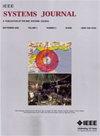Adaptive Consensus Tracking Control for Nonlinear Multiagent Systems With Unknown Dynamics: A State Observer-Based Framework
IF 4.4
3区 计算机科学
Q1 COMPUTER SCIENCE, INFORMATION SYSTEMS
引用次数: 0
Abstract
In this study, we introduce an observer-based adaptive output-feedback tracking consensus approach designed for a class of uncertain nonlinear leader–follower multiagent systems. Each follower agent exhibits second-order unknown nonlinear dynamics, incorporates unmeasured states, and possesses an unknown control direction. To tackle these challenges, fuzzy logic system is integrated with an observer, and a Nussbaum-type item is integrated into the protocol for each agent to adaptively and cooperatively determine the control direction. Subsequently, we have developed adaptive fuzzy distributed control protocols for each follower agent. The proposed consensus protocols have been demonstrated to ensure semiglobally uniformly ultimate boundedness for all system signals. Furthermore, we extend the control gain from constant to a state-dependent gain, delving into the globally uniformly ultimate boundedness of multiagent systems. To mitigate the intricacies arising from virtual control differentiation, command filtering is integrated with backstepping techniques, thereby streamlining the control process and enhancing overall system performance. The efficacy of the proposed method has been validated through simulation examples.未知动态非线性多智能体系统的自适应一致性跟踪控制:一个基于状态观测器的框架
本文针对一类不确定非线性leader-follower多智能体系统,提出了一种基于观测器的自适应输出反馈跟踪共识方法。每个跟随智能体表现为二阶未知非线性动力学,包含不可测状态,并具有未知控制方向。为了解决这些问题,将模糊逻辑系统集成到一个观察者中,并在协议中集成一个nussbaum类型的项目,使每个智能体自适应地、协同地确定控制方向。在此基础上,针对每个跟随体开发了自适应模糊分布式控制协议。所提出的共识协议已被证明能保证所有系统信号的半全局一致最终有界性。进一步,我们将控制增益从常数扩展到状态相关增益,深入研究了多智能体系统的全局一致最终有界性。为了减轻虚拟控制差异带来的复杂性,命令过滤与后退技术相结合,从而简化控制过程并提高整体系统性能。通过仿真算例验证了该方法的有效性。
本文章由计算机程序翻译,如有差异,请以英文原文为准。
求助全文
约1分钟内获得全文
求助全文
来源期刊

IEEE Systems Journal
工程技术-电信学
CiteScore
9.80
自引率
6.80%
发文量
572
审稿时长
4.9 months
期刊介绍:
This publication provides a systems-level, focused forum for application-oriented manuscripts that address complex systems and system-of-systems of national and global significance. It intends to encourage and facilitate cooperation and interaction among IEEE Societies with systems-level and systems engineering interest, and to attract non-IEEE contributors and readers from around the globe. Our IEEE Systems Council job is to address issues in new ways that are not solvable in the domains of the existing IEEE or other societies or global organizations. These problems do not fit within traditional hierarchical boundaries. For example, disaster response such as that triggered by Hurricane Katrina, tsunamis, or current volcanic eruptions is not solvable by pure engineering solutions. We need to think about changing and enlarging the paradigm to include systems issues.
 求助内容:
求助内容: 应助结果提醒方式:
应助结果提醒方式:


